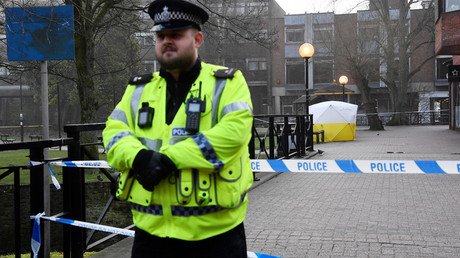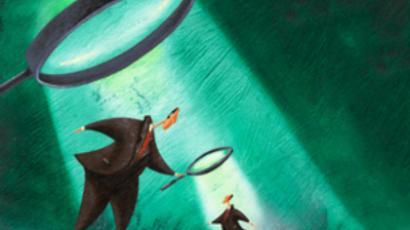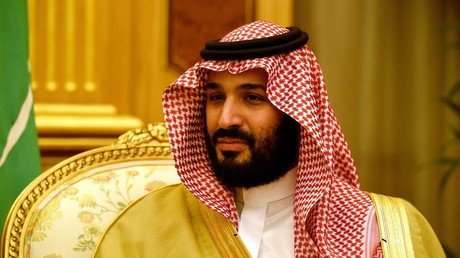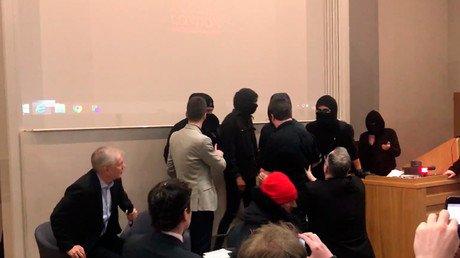Blame precedes evidence as Western media speculates freely over ill Russian spy (VIDEO)
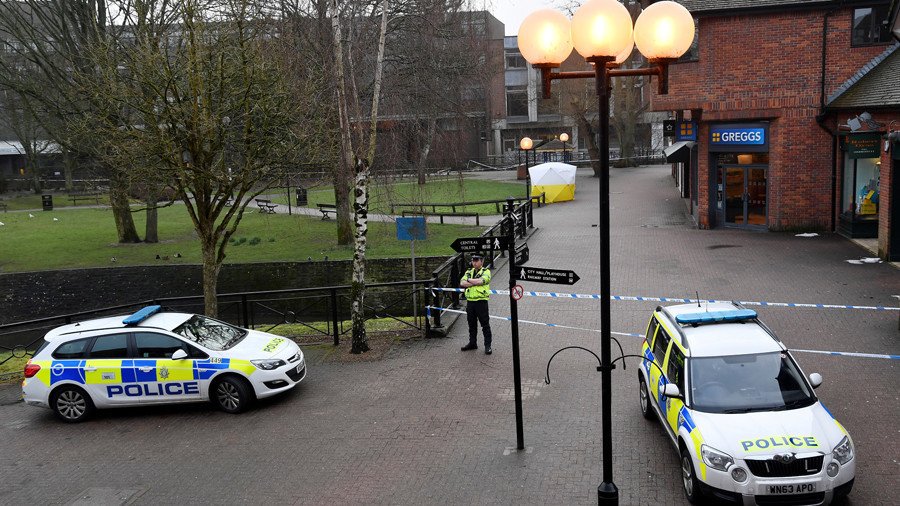
As details emerged that a Russian ex-double agent collapsed following “exposure to an unknown substance,” many were quick to point the finger at the Kremlin. “It didn’t take them long,” a spokesperson for Russia said.
Sergei Skripal, 66, and his daughter, in her 30s, were found slumped on a bench in Salisbury, England, at the weekend. They are both in a critical condition in intensive care.
Skripal worked as a double agent for the UK intelligence agency MI6 and was jailed in Russia in 2006 for spying for Britain, having passed on the names of undercover Russian intelligence agents. He was part of a “spy swap” when Russia released four spies in exchange for 10 Russian agents.
While details around the case or what the “unknown substance” was that may have caused their illness have not yet been released, many were quick to suggest the Russian government was involved.
BBC’s Newsnight on Monday suggestively asked a panel of “experts”: “Was the Russian state involved?”
One of those experts was financier Bill Browder, the chief executive of Hermitage Capital who calls himself “Putin’s number one enemy.” He admitted he didn’t know the details surrounding Skripal’s collapse, but disregarding the age-old “innocent until proven guilty” mantra said: “[With Russia], one should start with the worst assumption and work back from that.”
He added: “I would assume that until proven otherwise, the assumption should be that this man was poisoned, that he was poisoned with some kind of substance from what is known as the KGB poison factory.”
Speaking to the Press Association, Browder also claimed that Russian President Vladimir Putin has “publicly said that he kills traitors wherever they are in the world.” Putin has never said this, however. In fact, he has stated that Russian special services do not kill traitors.
Annie Machon, a former MI5 Intelligence Officer, responded to Browder’s claims by saying: “I think we are rather jumping the gun here.”
“There are many known unknowns in this case,” she added, “and I think it is slightly inflammatory to start throwing around accusations particularly in the era of ‘Russiagate’ and the Trump stuff.”
British newspapers have also been quick to speculate on the Russian government’s involvement. The Express splashed the headline ‘Was Sergei Skripal poisoned with polonium? Ex-spy fights for life amid fear of Kremlin hit,’ while the Sun asked “Was it Putin?” and the Mirror claimed Skripal’s case had “chilling echoes of killing of former KGB agent Alexander Litvinenko.”
Alongside its main news story on the incident, the Guardian is running a listicle headlined ‘Poisoned umbrellas and polonium: Russian-linked UK deaths,’ where it claims “Salisbury’s former spy is not the first Russian to fall ill in Britain in mysterious circumstances.”
In an “analysis” piece by the Times, defense editor Deborah Haynes claims there is “no deterrent” to stop Putin from “authorizing… an assassin.” Even though no link has been confirmed, the newspaper sought comment on whether there would be “any meaningful action from Britain to Russia.”
An Independent article on Tuesday discussed Putin’s “revenge” and said if Skripal was poisoned, it is a “warning” from Moscow. “Other would-be spies have been put on notice that nobody escapes the long arm of Vladimir Putin’s revenge,” the article said. The newspaper also claimed the British government should be compelled to do something about “the UK’s reputation as a soft playground for Russian criminals.”
BBC’s Moscow correspondent Steve Rosenberg took the time to tweet that “As a former Russian double agent fights for his life in a UK hospital today's Russian papers quote Vladimir Putin thanking the FSB for ‘uncovering 397 spies.’ The Kremlin leader met senior FSB staff yesterday.”
Rosenberg was quickly admonished by Twitter users. One person said: “You shouldn't imply a link between these two events when there is no official confirmation about what has happened in the UK or any Russian State role.”
As a former Russian double agent fights for his life in a UK hospital, today's Russian papers quote Vladimir Putin thanking the FSB for "uncovering 397 spies." The Kremlin leader met senior FSB staff yesterday. pic.twitter.com/YdJrUkQC2y
— Steve Rosenberg (@BBCSteveR) March 6, 2018
Australian journalists were also getting in on the act. Hugh Whitfeld, the Europe Bureau chief for Seven Network Australia, asked his followers: “International Spy Games?”
Police still in a Salisbury (UK) park after a Russian double agent was found seemingly poisoned. International spy games? He’s critical in hospital. Live report from here @7NewsSydney@7NewsMelbourne at 6. pic.twitter.com/IPbzeMnCxx
— Hugh Whitfeld (@hughwhitfeld) March 6, 2018
Kremlin spokesperson Dmitry Peskov described Skripal’s situation as “tragic” but said the Russian government could not comment because it does not have any information. He reacted to Western media linking Russia, however, saying: “It didn’t take them long.”
A Russian embassy press secretary said: “The situation in the media space is rapidly evolving into a new round of an anti-Russian campaign in the UK. Readers are offered various speculations, the essence of which is ultimately to slander Russia.”
Think your friends would be interested? Share this story!
